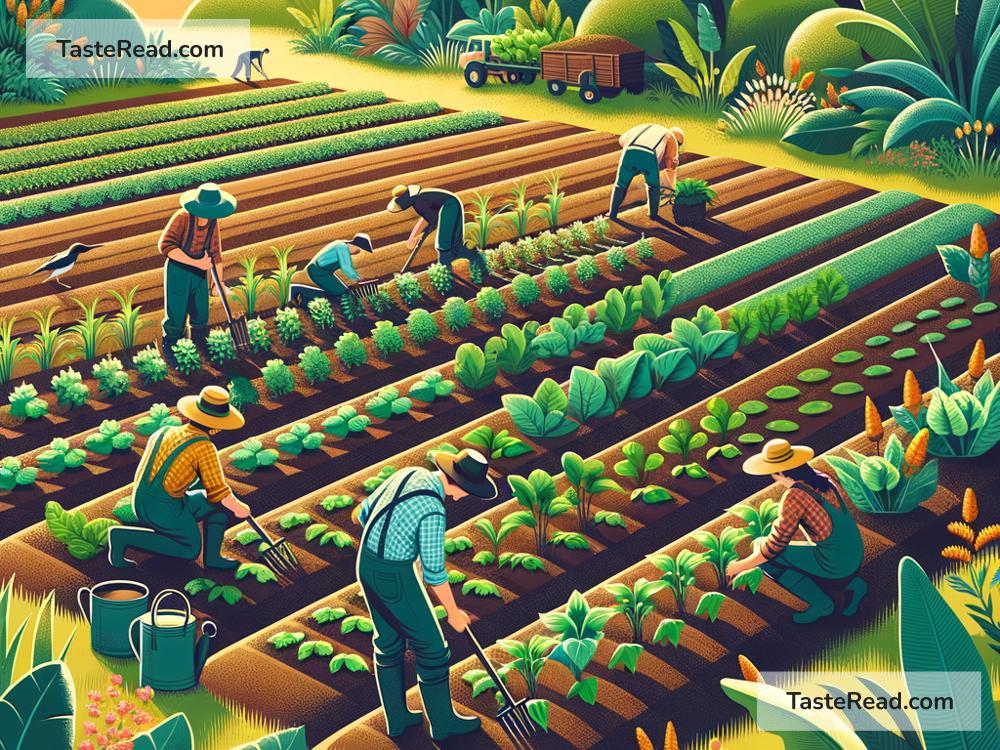Title: Dive into the Goodness of Low-Impact Farm Practices: A Simple Guide
Hey there, green thumbs and curious minds! Today, we’re embarking on a fascinating journey to explore the world of low-impact farming practices. Whether you’re a seasoned farmer, a home gardener, or someone who simply loves fresh, earth-friendly produce, understanding the benefits of these gentle farming methods is a big step towards a healthier planet and healthier you.
What is Low-Impact Farming?
Imagine you’re walking through a farm where the air is fresh, the soil is teeming with life, and the plants are thriving without being doused in harsh chemicals. That’s low-impact farming in a nutshell. It’s all about farming in harmony with nature, using methods that minimize harm to the earth and its inhabitants. This includes things like using natural compost for fertilizer, relying on beneficial insects to manage pests, and conserving water.
Benefits for Our Planet
1. Healthy Soil, Happy Planet
Low-impact farming is like a spa treatment for the earth. Instead of stripping the soil of its nutrients and life with chemical fertilizers and pesticides, it nourishes and revitalizes it. Healthy soil not only grows healthier, more nutritious crops but also plays a crucial role in fighting climate change by storing carbon.
2. Water Wisdom
These farming practices are like a conservationist’s dream come true. By using techniques like drip irrigation and rainwater harvesting, low-impact farming significantly reduces water use. Plus, avoiding chemical runoff means healthier rivers, lakes, and oceans.
3. Biodiversity Bonanza
By creating a more natural and diverse farm environment, low-impact practices encourage a variety of life to flourish. From bees and butterflies to birds and earthworms, this biodiversity is essential for pollination, pest control, and maintaining a balanced ecosystem.
Benefits for Farmers and Gardeners
1. Cost-Effective and Profitable
While it might sound costly to switch to or start with low-impact methods, in the long haul, it’s actually more cost-effective. Natural compost and pest control methods are often cheaper than chemical alternatives. Plus, healthier soil produces robust crops that can fetch a better price at the market.
2. Resilience Against Climate Change
Low-impact farms tend to be more resilient in the face of extreme weather, thanks to practices that preserve soil health and water. This means better yields and less risk of crop failure, which is a win-win for farmers and the environment.
Benefits for Consumers
1. Nutritious and Tasty Food
It’s simple – healthier soil grows healthier food. Crops cultivated through low-impact practices are often more nutrient-dense and flavorful. So, indulging in food from low-impact farms is not just good for the planet; it’s good for your taste buds and wellness too.
2. Safe from Harmful Chemicals
Eating food that’s grown without harsh chemicals means you’re reducing your exposure to potentially harmful pesticides and fertilizers. This is great news for everyone, especially kids and those with health concerns.
How Can You Support Low-Impact Farming?
1. Choose Local and Organic
Next time you’re shopping, reach for products that are labeled as organic or sustainably grown. Better yet, buy directly from local farmers or markets where you can ask about their farming practices.
2. Grow Your Own
Even if you have just a tiny space, consider growing some of your own food using low-impact methods. It’s rewarding, and you’ll get to enjoy the freshest, tastiest produce around – yours!
3. Spread the Word
Talk about low-impact farming with your friends and family. The more people understand and support these practices, the more we can collectively make a difference.
Wrapping It Up
Low-impact farming practices aren’t just a trend; they’re a return to a more sustainable and thoughtful way of cultivating the land. By embracing these methods, we support a future where farming works with nature, not against it, ensuring a thriving planet for generations to come.
Whether you’re rolling up your sleeves to plant a garden, choosing healthier, more sustainable foods, or simply spreading the word, every small action counts. Together, let’s sow the seeds of change and watch as a healthier, greener world takes root.


